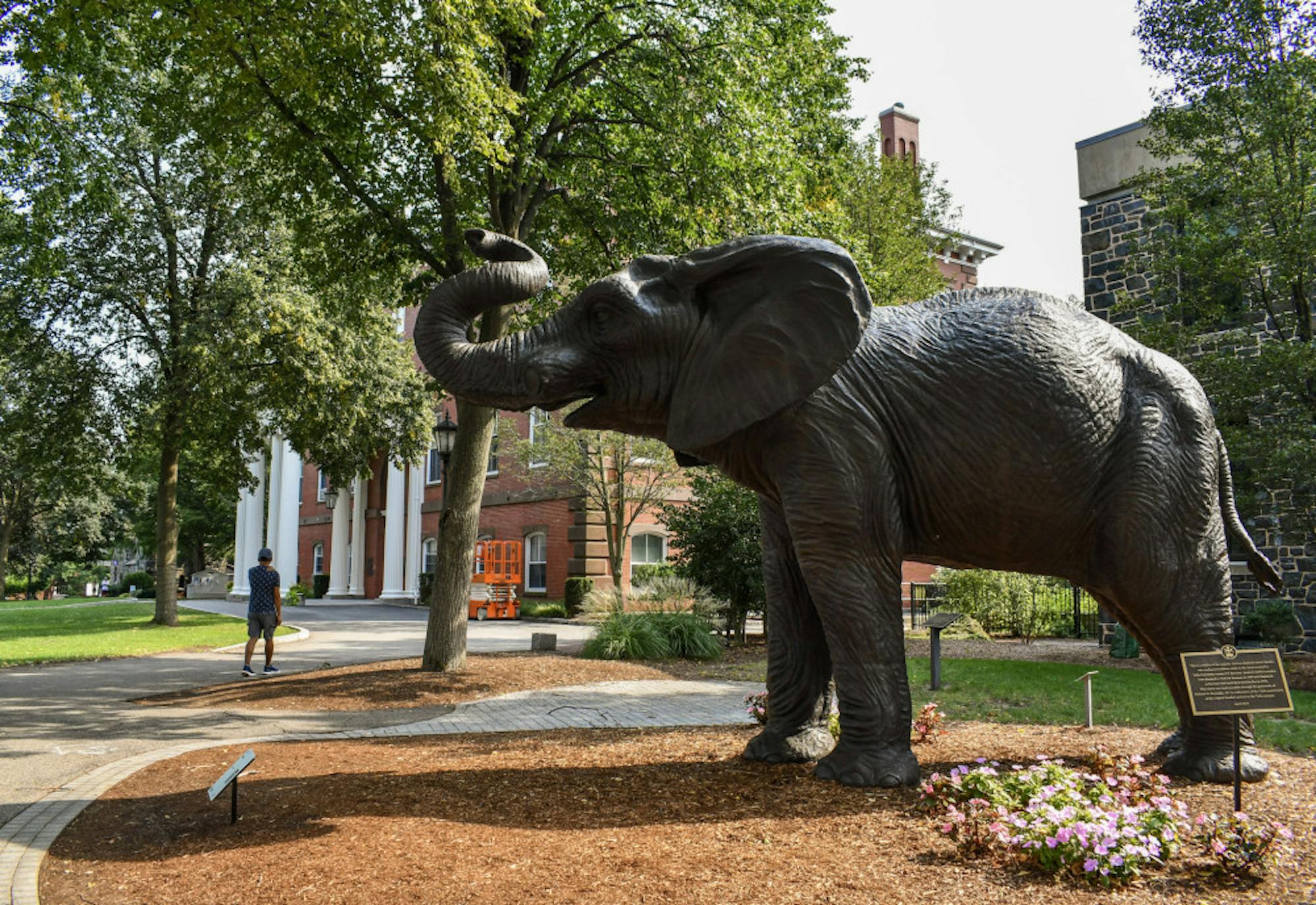The Tufts Community Union concluded its first-year senatorial election on Sept. 29. First-years Jose Armando, Thy Nguyen, Anand Patil, Dhruv Sampat, Donovan Sanders, Caroline Spahr and Savvy Thompson were chosen as the seven student senators to represent the Class of 2026.
Spahr sees TCU Senate as an opportunity for community involvement and a way to make a difference for her peers by communicating with the administration.
“I really like talking to my classmates,” Spahr said. “I really like hearing about their concerns. I feel like I wanted to be in a position where I was able to have some kind of ability to help … [create] a better experience for them at Tufts.”
As a senator, Spahr’s goals for enacting policy changes stem directly from the concerns of the student body. Before her campaign, Spahr talked with other students to understand what problems the first-year community currently faces, many of which the Senate is currently working to solve.
“A lot of the issues the Senate [is] actually working on now are issues that people brought up,” Spahr said. “One of the things I'm really, really excited about is free menstrual products in all the bathrooms.”
Sanders and Spahr also emphasized the importance of building community. For example, Sanders would like to generate more publicity and excitement for Tufts Homecoming 2022 by adding more events and performances, noting that while homecomings at other colleges last up to a week, Tufts’ festivities only last a weekend.
“I want to implement more cultural groups within our Homecoming,” Sanders said. “Maybe a battle of the bands with our a capella groups or a dance-off with our dance groups, or maybe even a step battle because, while we do have ENVY and BlackOut, I feel like the wider student body [doesn’t] know much about our cultural groups.”
While also focusing on community-building improvements such as renovating residential areas, Patil aims to solve day-to-day issues with sidewalks and pathways at Tufts. As someone who is interested in urban planning, Patil said that he has noticed a lack of consistent handicap accessibility.
“I’ve noticed a lot of ADA, American Disability Act, compliance issues with the school,” Patil said. “For example, having tactile strips that go down when you're about to cross the road and stuff that’s just straight up not handicap accessible. That’s the kind of stuff I want to do, improving [the] safety and ease of just getting around campus.”
Nguyen, Sanders, Spahr and Armando spoke about the diversity of the elected senators, with five out of seven senators being people of color.
“Having a diverse student body on TCU Senate will help establish and build trust with many different minority groups at Tufts, help students of color feel … comfortable while sharing their concerns,” Nguyen wrote in a message to the Daily. “More importantly, we can be more inclusive in making decisions, avoiding potential bias or unfairness.”
As a student of color, Sanders would like to implement changes to benefit racial minority groups on campus through policies such as equitable grading and creating more diversity within the university’s healthcare system. Nguyen found that people of color implementing legislation to aid minority students is the most helpful way to support them.
“We need to have someone who shares the same background, the same experiences to represent us because you cannot make the choice for someone when you don’t know about them or you don’t come from the same background,” Nguyen said.
Armando also emphasized the importance of keeping the university accountable. He cited his experience as a resident of The Court at Professors Row as an example of how the school could be more communicative and transparent with its students.
“One of the first things that got me into running for TCU is making sure that there’s transparency between students and [the] administration, not only [with] the housing crisis that’s going on but also with other things,” Armando said.
Sanders agreed with Armando, stating he would like to ensure Tufts is upfront with the student body and follows through on its promises.
“Something that’s brought up a lot is the ‘performative-ness’ of Tufts,” Sanders said.
According to Armando, this election had a large turnout. Armando connected first-years’ active participation in the community with younger generations’ growing civic engagement.
“We are focused [on] building a better community,” Armando said. “I’ve talked about how, if we work together, we can make the impossible possible. And, the way we can do that — not only in student government, but also as members of society — is making sure that our voices out there [are] being heard, making sure that everybody’s being represented.”






